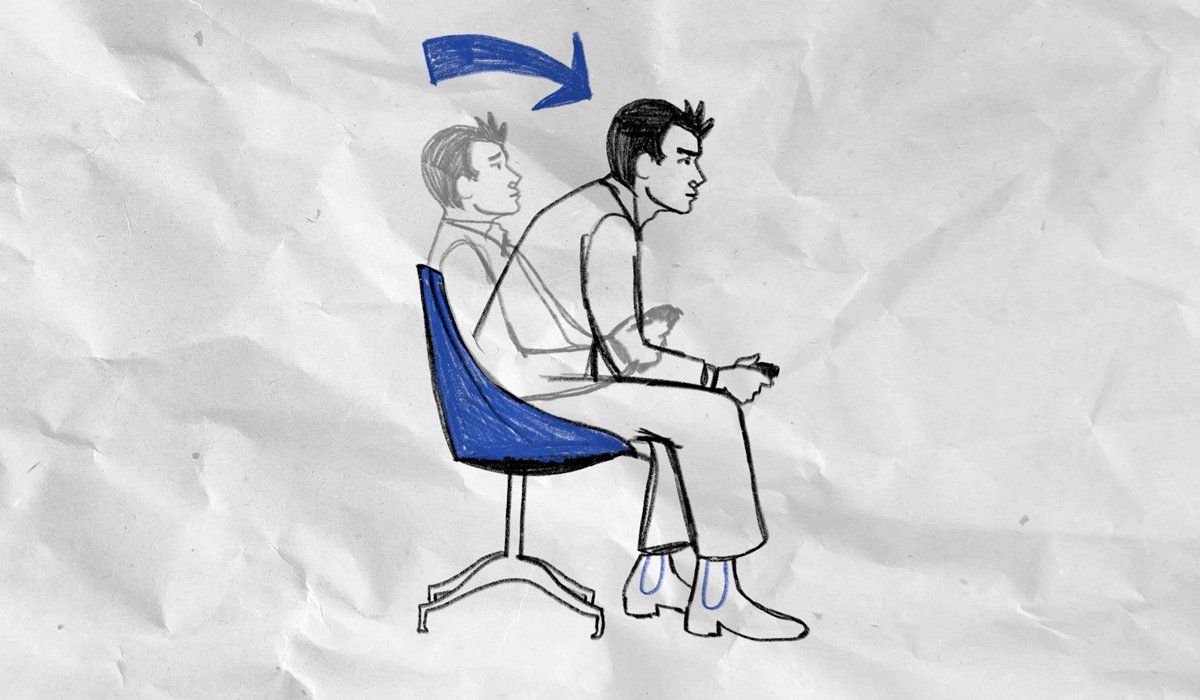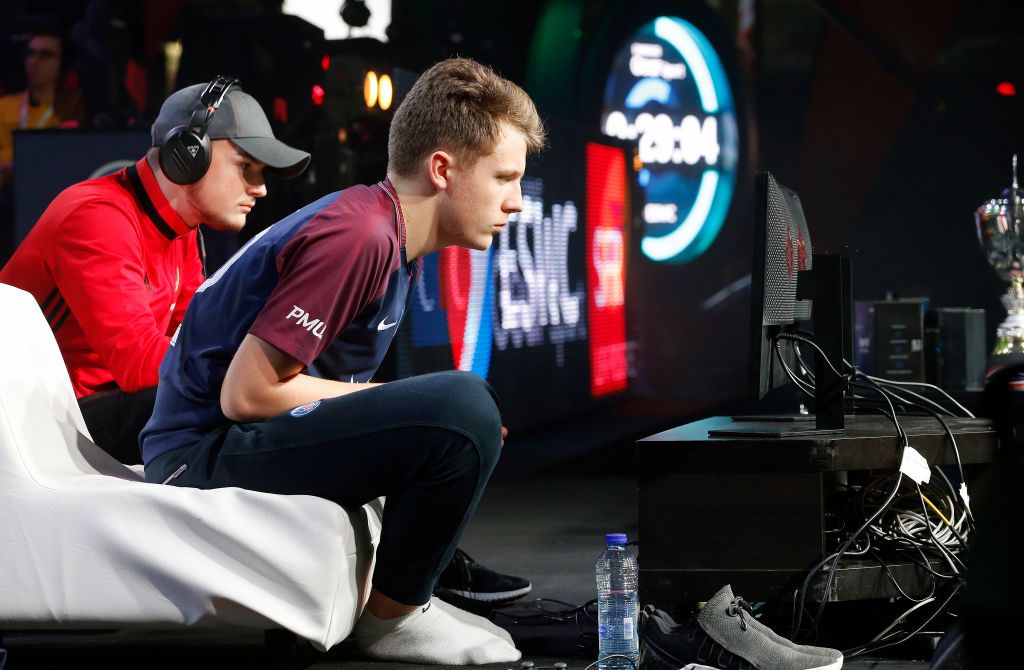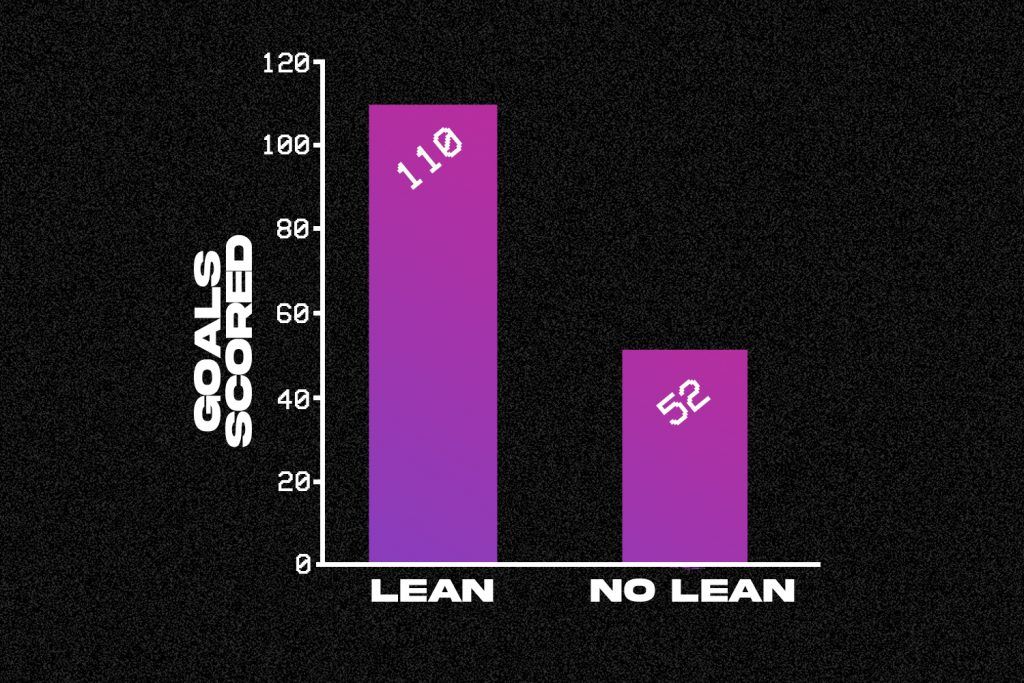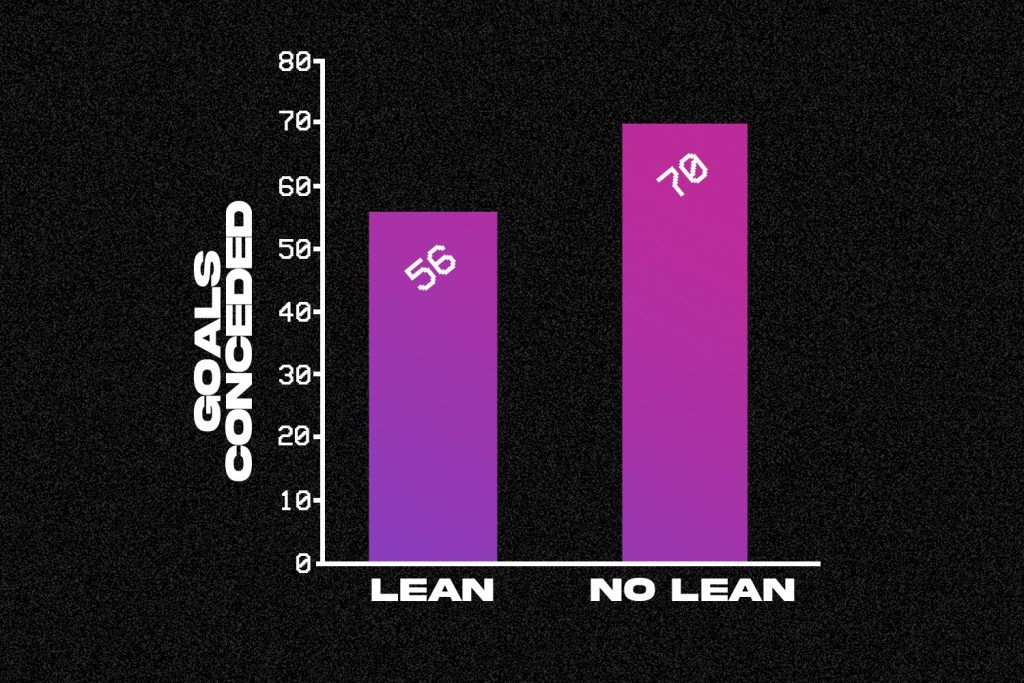Science has spoken: the 'gamer lean' is real and it actually helps you win at FIFA.
We've all had it happen to us on multiple occasions: you're beating your mate on
FIFA, then suddenly
EA's servers, scripting, the devil—who knows what takes over, before they run up the other end and score a goal against the run of play.
So, try-hard mode engaged: you lean forward in your seat and prepare to absolutely trounce your former friend for having the audacity to challenge your throne. We've all seen the meme and we all know it's factually proven to help you play better - it's just science.
Well, turns out, it actually is...

What's the logic?
According to a
scientific study by Stakester - a mobile app where you can play against others for real money and prizes - and Leeds University, the gamer lean genuinely impacts how people play games. Or, at least, FIFA.
While the 'lean forward' meme might have started out as nothing other than a small bit of observational humour in the
gaming community, it has always created the impression of added focus and alertness. As it happens, that feeling is well-founded, as an initial survey of 10,000 gamers revealed that 79.9% lean forward when gaming.
The study itself was conducted by
Leeds University's, Dr. Andrea Utley, who works as a Reader in Motor Control in the School of Biomedical Sciences department. Utley explains the logic behind leaning forward as follows: “Moving your main sensory system closer will help your focus and concentration, but without full postural support, especially from the trunk and neck muscles, you will get fatigued".
Furthermore, Dr. Utley went on to carry out further, more incisive analysis, not only on this habitual gaming trend but how it correlates to actual success when playing, using FIFA as the game of choice to test.
The numbers
Her research discovered that of the near 8000 leaners, 49.2% did so naturally, 9.3% did so on purpose and 41.5% found that they did both. That minority is clearly more than just committed to winning at whatever game they're playing: they were on to a now tried a tested tactic - so too those that leaned in intentionally or not.

Though everyone sat in various different locations - on the end of a bed, on the sofa; gaming chairs and other seats, some even standing up (you 0.7% have some explaining to do) - they all had very valid reasons for doing so.
While most people simply cited that they felt more alert when doing the gamer lean, with the second most popular reason being that it just helped them see better, there were some more detailed rationales that we can certainly get behind.
11.1% said that they think leaning would "support my body better" and a savvy 6.5% of people posited the very sensible suggestion that it eliminates other distractions by "reducing peripheral vision". On the other hand, 23.2% gave a myriad of adjacent justifications - we don't have a full list but let's just say there's method in everyone madness.
The experiment
So, with all that being said, Stakester and Dr. Utley set about handing out a task to their test subjects. They selected 10 gamers who played an average of 8-10 hours of FIFA a week - which they estimated to meet the definition of a “casual” player - and asked them to record themselves playing five online matches.
The sample was taken from men aged between 18-35 from around the UK and Europe as this most closely resembled the app's main demographic and, most importantly, they didn't tell them why exactly they were being filmed. Every participant played the game as they would normally and no mention of a living 'FIFA lean forward' meme was uttered.
As the study reads: "We analysed each player’s movement and body position in the footage. We noted every major event that transpired in-game, how players reacted to them and their body position when each event occurred". It was only afterwards that they were given the survey and asked to report on how aware they were of the gamer lean and if they thought it was effective.
The FIFA Facts
From this point on, as the saying goes, 'the stats speak for themselves'. As was observed across the total of 50 online matches against real-life opponents, the experiment found that players scored more than double the number of goals while leaning as they usually would when sitting back - 110 in total.

It was noted that not only did players lean multiple times during a single game - usually to react to big in-game moment like scoring, conceding, losing the ball etc. - but that it clearly "sharpened players’ instincts in front of goal". Apparently, players were even inclined to incline when they picked up the ball with Cristiano Ronaldo, in particular. CR7 strikes again.
Moreover, the study found that players performances didn't just improve when it came to scoring but defending too; though the gulf wasn't quite as stark, they still let in 14 fewer goals when leaning forward. Improvement at both ends of the pitch. "Attack wins you games, defence wins you titles" - or at least the right to be mentioned in a scientific study.

The catch
So, that settles that then, right? Leaning in makes you a better FIFA player—FACTS. Well, turns out there's a catch. I mean, think about it: we've all done the gamer lean and still failed to reap the rewards somehow.
The truth is, Dr Utley found that there is a specific 'lean threshold' that players operate within when playing FIFA or (in theory) any game, for that matter. Leaning forward for the entire game won't help you but doing so strategically could. Here's what she recommends:
Stay under the 'lean threshold'
As per Utley and Stakester’s research, players who won each game actually spent considerably less time ‘leaning’ overall than the players who lost. "Winning players leaned forwards for just
4.69 minutes – 35.5% of an average length game – while losers spent 7.93 minutes in the leaning position [...] 52.6% of the average game on FIFA 21".
To put it plainly, if you spend around a third of the game utilising this body position, you may still benefit from the effects of the gamer lean. However, if you try to spend more than half of the game leaning forward, the power of the pro gamer lean begins to fade and you could be on the end of a 7-0 slapping.
The model has yet to be tested on other games but let's face it, any edge you can get in a game of FIFA, especially online, is a victory. It's a game that breaks far too many spirits and even more controllers. Stakester's CEO and Founder, Tom Fairey had this to say in an official statement following the study:
The gamer lean has become a universal meme, but until now, the science behind its benefits were completely unknown. FIFA is a game of split-second reactions and quick decision making, so even a small edge can make a big difference – especially if there’s something at stake. Dr. Utley's research means gamers everywhere can reap the benefits of the lean, and FIFA players who are more mindful of when they implement it should see better results. Use it wisely and I’ll see you on the pitch.
So there you have it folks: the gamer lean is real and it can genuinely help you win games of FIFA but only if used sparingly. Remember, with great power comes great responsibility. Our advice is don't tell your mates - unless they read JOE, in which case, game on.
It might be bad for your back but it's good for winning. Besides, most gamers gave up on having good posture and accepted lumbar problems as part and parcel of the pastime years ago.




 Though everyone sat in various different locations - on the end of a bed, on the sofa; gaming chairs and other seats, some even standing up (you 0.7% have some explaining to do) - they all had very valid reasons for doing so.
While most people simply cited that they felt more alert when doing the gamer lean, with the second most popular reason being that it just helped them see better, there were some more detailed rationales that we can certainly get behind.
11.1% said that they think leaning would "support my body better" and a savvy 6.5% of people posited the very sensible suggestion that it eliminates other distractions by "reducing peripheral vision". On the other hand, 23.2% gave a myriad of adjacent justifications - we don't have a full list but let's just say there's method in everyone madness.
Though everyone sat in various different locations - on the end of a bed, on the sofa; gaming chairs and other seats, some even standing up (you 0.7% have some explaining to do) - they all had very valid reasons for doing so.
While most people simply cited that they felt more alert when doing the gamer lean, with the second most popular reason being that it just helped them see better, there were some more detailed rationales that we can certainly get behind.
11.1% said that they think leaning would "support my body better" and a savvy 6.5% of people posited the very sensible suggestion that it eliminates other distractions by "reducing peripheral vision". On the other hand, 23.2% gave a myriad of adjacent justifications - we don't have a full list but let's just say there's method in everyone madness.
 It was noted that not only did players lean multiple times during a single game - usually to react to big in-game moment like scoring, conceding, losing the ball etc. - but that it clearly "sharpened players’ instincts in front of goal". Apparently, players were even inclined to incline when they picked up the ball with Cristiano Ronaldo, in particular. CR7 strikes again.
Moreover, the study found that players performances didn't just improve when it came to scoring but defending too; though the gulf wasn't quite as stark, they still let in 14 fewer goals when leaning forward. Improvement at both ends of the pitch. "Attack wins you games, defence wins you titles" - or at least the right to be mentioned in a scientific study.
It was noted that not only did players lean multiple times during a single game - usually to react to big in-game moment like scoring, conceding, losing the ball etc. - but that it clearly "sharpened players’ instincts in front of goal". Apparently, players were even inclined to incline when they picked up the ball with Cristiano Ronaldo, in particular. CR7 strikes again.
Moreover, the study found that players performances didn't just improve when it came to scoring but defending too; though the gulf wasn't quite as stark, they still let in 14 fewer goals when leaning forward. Improvement at both ends of the pitch. "Attack wins you games, defence wins you titles" - or at least the right to be mentioned in a scientific study.
